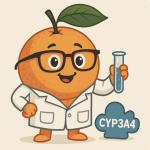“We think wearables are a key to the MAHA agenda. …It’s a way people can take control of their own health. They can take responsibility.
Biomedicine & Biotech
There are good prescription drugs, bad ones, and then there is Antabuse (generic name disulfiram). It is both. Antabuse works, but you'd better give it plenty of respect.
Here’s an interesting take on gut health: a recent study from Loyola University Chicago shows how heavy drinking and serious burns mess up the good
Grapefruit juice has long been known to interfere with certain medications. For some, this might sound like quirky nutrition trivia.
By any measure, plastic waste is a global headache.
In June, the recently downsized CDC vaccine advisory panel voted to stop recommending flu vaccines containing thimerosal. Health and Human Services Secretary Robert F. Kennedy Jr.
Suppose you're designing a clinical trial to determine whether people from Inner Mongolia are better or worse swimmers than those from Outer Mongolia.
Vaccines are meant to help, not harm. So you can imagine our surprise when we first heard of the intriguing term gaining popularity among the anti-vaccine crowd: turbo-cancer.
Acetaminophen, aka Tylenol, aka America’s favorite over-the-counter placebo with a liver warning, is widely used. Make that overused, in my opinion [1]. It’s taken by nearly everyone, including breastfeeding women.
If the title caught your eye, you and I probably share an annoying condition. Make that seriously annoying.









